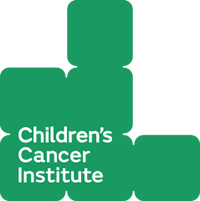Project overview:
Childhood cancer is the second leading cause of death in Australia. Therapeutic options for high-risk childhood cancer are limited. Our world-leading precision medicine program (ZERO Childhood Cancer, PRISM study) has already established a novel platform to increase therapeutic drug options for children with high-risk cancer. Two out of three children enrolled on PRISM are provided with a therapeutic drug recommendation, however only 30% of children receive these treatment recommendations, of whom 31% have a clinical response[1, 2]. There are various reasons why the treatment recommendation is not adopted, however this is not well understood.
The purpose of this current research project is to establish what factors help determine whether a treatment recommendation will be adopted. This will help guide successful use of research resources, to present information to Paediatric Oncologists in the most effective way, and to determine the relative value of pre-clinical drug screening and patient-derived xenografts in influencing uptake of a treatment recommendation.
Project Background: Promise and Challenges of Precision Medicine
Precision medicine in paediatric oncology is a rapidly evolving area, where oncologists, parents and patients are provided with individual patient treatment recommendations based on comprehensive molecular analysis of the patient’s tumour and, in some cases, the tumour cell’s exposure to drug testing in the laboratory. The goal of these treatment recommendations is to improve patient outcomes. A “study of one” refers to the highly individualised information that is generated, and recommendations are made using best available scientific evidence. There have been encouraging results seen so far, with improved outcomes for many children with cancer.
However, whether the child receives the therapy is a decision primarily driven by the child’s treating oncologist. Those factors which determine treatment uptake by the oncologist are unknown. A greater understanding of the factors which lead to uptake of individualised patient tumour analyses, in this very difficult clinical circumstance of a potentially fatal childhood illness, will guide the application of future precision medicine and refine current decision making.
In Australia, PRecISion Medicine for Children with Cancer (PRISM) is a national comprehensive platform within our broader “Zero Childhood Cancer” Program (ZERO). PRISM combines molecular sequencing with in vitro high-throughput drug screening (HTS) and in vivo patient-derived xenograft (PDX) drug testing to identify targeted therapeutic agents for high-risk paediatric oncology patients in Australia (NCT03336931)[1, 2]. Results and treatment recommendations are curated, presented and discussed at a national Molecular Tumour Board (MTB) and a report is issued to the treating oncologist.
PRISM is able to offer at least one treatment recommendation to 67% of patients. These recommendations are provided as tiered recommendations, based on the iCAT Boston tiering system [3], with disease responses seen at all levels of tiered recommendation [1]. The current rate of uptake of recommendations by the oncologist and family within the PRISM cohort is 30%, of which 31.4% of patients had an objective response. Conversely, this means that 70% do not take up an individual treatment recommendation.
A greater understanding of these decisions will provide valuable insights for future oncologists and parents. Moreover, our data will help scientists factor in acceptability and uptake when they are contemplating the introduction of new diagnostic techniques.
A direct output of this planned body of work, which includes a unique PhD opportunity, will be either an interventional or implementation study, guided by research findings. This study will therefore foster development of tools to aid future decision-making in paediatric oncology, which may be applied to precision medicine more broadly. Opportunities to validate our findings and collaborate internationally, including piloting of any decision-aids that are developed through this work, will be sought.
What you will do:
Through this exceptional, funded PhD research opportunity, you will develop skills in
i) scientific reasoning
ii) analysis of quantitative and qualitative research data
iii) systematic review skills
iv) discrete-choice experiment design.
v) This project will place you in an unique position at the research interface of clinical treatment decisions in paediatric oncology, with opportunity for research translation through to the next national precision medicine platform, ZERO2.
We anticipate that this work will lead to at least 3 publication opportunities. Additional publication opportunities may arise during the course of the PhD, due to the collaborative nature of this work.
Where you will be based:
You will be based in the Kids Cancer Centre (KCC), Sydney Children’s Hospital, working alongside Professor Glenn Marshall and Dr Marion Mateos, in close collaboration with the Zero Childhood Cancer Project team and the Behavioural Sciences Unit (KCC). Your PhD enrolment will be through the School of Women’s and Children’s Health, University of New South Wales.
Supervisory team
Co-primary Supervisors: Professor Glenn Marshall, Dr Marion Mateos
Co-supervisors: Dr Kate Hetherington, Dr Sheena Arora
Eligibility and Selection Criteria:
This project is open to domestic applicants within Australia. Applicants must meet eligibility criteria for entrance into a PhD (https://research.unsw.edu.au/higher-degree-research-programs).
Additionally applicants must meet the project selection criteria:
Essential:
- Ability to understand and critically evaluate scientific publications and background documents.
- Strong interpersonal skills including fluent written and spoken English communication
- Capable of independent thought, self-motivation and self-direction
- Prior research experience
- Demonstrated ability to incorporate aims and hypotheses to generate scientific research questions
Desirable
- Undergraduate degree within biomedical sciences, allied health, psychology, medicine, public health, health services research, nursing
All applications that meet the eligibility and selection criteria will be considered for this project. A merit selection process will be used to determine the successful candidate.
The successful applicant is expected to study full-time, and to be based at the Kids Cancer Centre, Sydney Children’s Hospital, Randwick.
Essential Dates
Applicants are expected to start in a timely fashion upon receipt of an offer, with the goal of commencement by August 1st 2022. Extended deferral periods are not available. Applications close at 5.00pm [AEST], April 26th 2022.

 Continue with Facebook
Continue with Facebook



